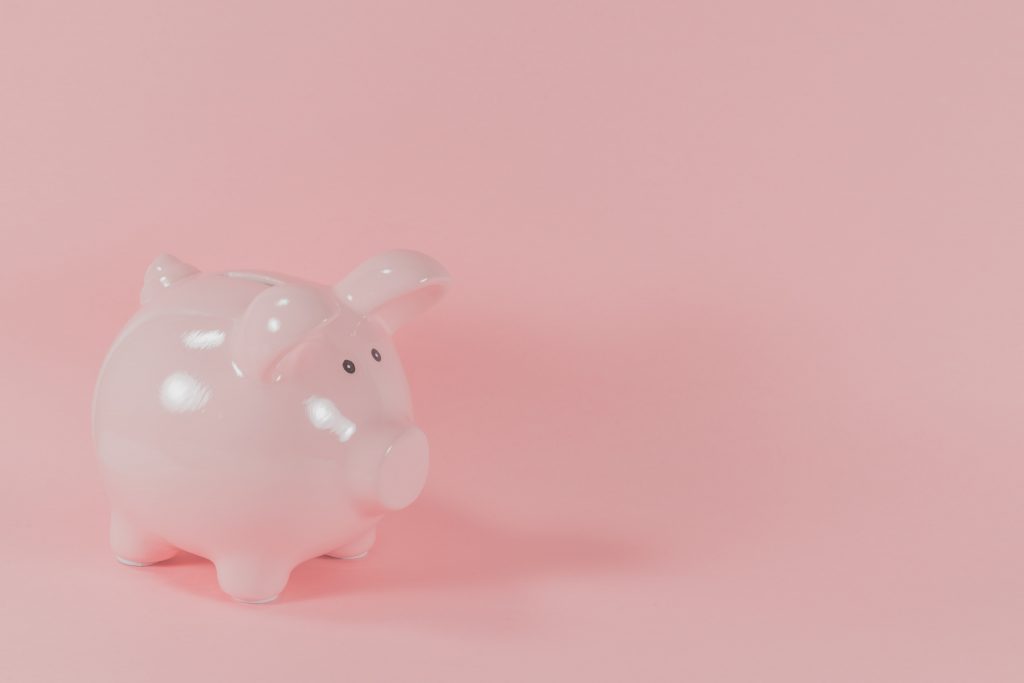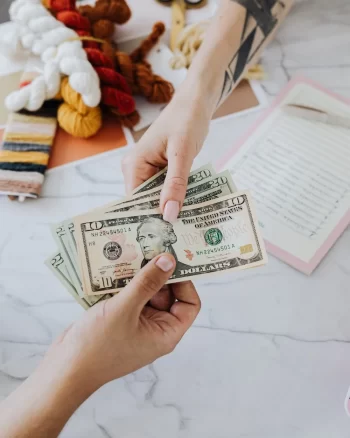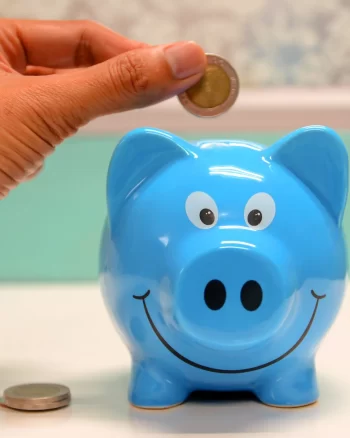
When you’re thinking of opening a bank account it can be frustrating arriving at the bank without the right documentation. Being well informed and ready to go with all the correct documentation is important. This will save you time and money traveling to and from the bank. Furthermore, it’s important you make the right choice of account. If you’re wondering what you need to open a bank account we have everything you need in this article.
Now that you’re ready to open a bank account, you need to make sure you’re eligible to open an account. If you’re aged between 14-18 years of age you’ll need to have a parent or guardian present who will act as a co-owner of the account. Over 18 are free to open their own accounts as long as they have a social security number. If you meet the requirements above read on for more information.
How much deposit do you need to open a bank account?
When opening a bank account this is one of the most popular questions people need to know. The amount of money you will need to deposit when opening a bank account will depend on the bank. Accounts that are opened online normally don’t require a minimum deposit whereas a credit union account may require a little as $5.
You may be incised by the low deposit requirements to open a bank account. However, it’s important you look out for monthly balance requirements. Some banks may require you to have a minimum monthly balance and may charge a service fee if your balance is below this. Other banks may require you to deposit a specific amount each month to keep your balance up. It’s important to be aware of these when choosing your account.
How do I choose the right bank?
When choosing a bank whether it’s online or in your city there are many things to consider. In order to decide which bank is best for your needs and wants you’ll need to compare a few. Here are some of the main things to consider when choosing a bank.
- Location: Being able to occasionally pop into your bank to cash a cheque, make a deposit, or talk to someone in the branch would be amazing. If you’re new to banking and need advice from a banker it’s useful to have the bank within reach. Online banking is a bit different, however, it’s important to consider which ATMs can I use? Where can I make a deposit? How do I contact Customer service?. All of these are important aspects of location.
- Banking Fees: When your opening a bank account you need to ask this vital question. “How Mich does it cost to open a bank account?.” Many bank accounts do not require an opening fee however you can occur monthly fees. Fees such as ATM withdrawal charges, overdraft charges, credit card annual fees, and maintenance fees are examples of fees that can add up.
- Minimum monthly balance: Some banks tend to charge a service fee if your account is below the monthly balance amount.
- Digital access: It’s important to know if the bank has a smartphone app or online access. this is important as it allows you access to you’re account 24 hours a day.
- Consider credit unions: Credit unions are good to consider as they offer competitive interest rates due to the fact they are non-profit. The main thing to consider is that credit unions only accept members from specific professions, colleges, federal government work, military, or even residents of a certain area. The credit union provides a credit union finder for your area.
- Other services: some banks will also offer Business banking, auto loans, credit cards, and even investment services which are great to consider.
What bank account should I open?
When your thinking of opening a new bank account there are many things to consider. You must ask yourself what you need the account for and what you want to get out of the account such as benefits and interest. The main types of accounts are listed below for your consideration.
Savings account
Saving accounts are great if you’re looking to save a little amount of money and have full access to it. Savings accounts enable you to access your funds at any time and even give you a little interest while saving. If you wish to withdraw funds you can do this by withdrawing cash at the bank, transferring funds to a linked checking account, or a wire transfer. Due to federal law limitations on saving accounts, you’ll only be allowed to make a total of six withdrawals and transfers per statement.
Note: The current average interest rate for a savings account with under $100,000 balance is 0.05% APY.
Checking account
Checking accounts are accounts you’ll add your money to for day to day spending. With a checking account, you can make daily purchases and pay bills. You can request a debit card that is linked to your account that gives you easy access to your funds. Most checking accounts will have online banking where you can set up recurring payments and also view your bill. This is a great account to set up direct deposits where your employer can deposit your paycheck each month. If you’re checking account balance is a little high you can transfer funds to a linked savings account. These accounts will give you the average interest rate amount.
Note: The current average interest rate for a checking account with under $100,000 balance is 0.04% APY.
Certificates of deposit (CD’s)
Have a lump sum of cash saved up? if you have a good amount of cash saved up and don’t need it to pay the bills or for day to day expenditure a CD account will be the best way to store your money. CD accounts fix your money for 6-8 months, however they do offer the best interest rate. Due to the fact you cannot withdraw your money for a fixed amount of time you’ll earn a lot more interest than you would with a saving or money market account.
Note: The current average interest rate for certificate of deposits will vary from 0.08% APY for 3months, 0.12% APY for 6months, 0.18% APY for 12 months and 0.37% APY for 60 months.
Money market account
Money market accounts are similar to saving accounts and higher interest rates. However, the same six-month withdrawal restrictions in place with heavy fees if overstepped. The main difference between a money market account and a savings account is the added benefits. With a money market account, you have Perks such as cheque-writing and an ATM card.
Note: The current average interest rate for a money market account with under $100,000 balance is 0.08% APY.
How to open bank accounts
There are many ways in which you can open specific accounts. Some accounts will need different documentation for other accounts. For the main account types listed above here is a list of things to think about when opening them.
How to open a savings account
When opening a savings account you’ll need to provide the same documentation as a checking account listed below. If you have an existing checking account you’ll be able to link the two accounts making it safer to move and store funds. As stated above savings accounts are limited to six withdrawals or transfers a month by the Federal Reserve.
How to open a checking account
The main question would be what do you need to open a bank account? no matter what the bank account you wish to open most of the requirements will the same. You’ll need to fill out an application, you’ll need to sign a signature card (this enables the bank to verify your identity) you can do this in branch or mail it to you online bank.
If you’re looking to open a checking account or any other bank account you’ll need to provide the following documentation:
- Physical address: under federal law, you’ll need to provide a street address, not just a mailing address.
- Proof of date of birth: This could be a passport or a birth certificate.
- Government-issued id: You’ll need a photo id this could be your passport, drivers license, or state-issued id. Some banks may require two forms of id. Birth certificate, social security card, or a credit card in your name can be significant enough as a second form of id.
- Social security number: You’ll need your social security number (SSN) or Taxpayer identification number (TIN).
- Opening balance: You’ll need to bring cash or a cheque to find your new bank account. The amount will depend on the bank however checking and saving accounts don’t normally require more than $25 to open.
When your opening a checking account make sure you ask for a debit card. With checking accounts you can have the option of ordering cheques however they come at a fee. With the ability to view and make transactions online and use debit cards for daily expenses you may not even need cheques.
If you want your paychecks deposited into your checking account for free you’ll need to remember to request a direct deposit form with your information filled in. This will need to be supplied to your employer so they can deposit your paycheck each month.
How to open a CD account
When opening a CD account, just like the checking account you’ll need a photo id, your social security number (SSN), and money for the deposit of the account. It’s important you research each CD account before opening an account as the interest rates can vary depending on the amount of time you deposit your money.
When opening a CD account it’s important you deposit your money for as long as you feel comfortable. The longer you deposit your money the higher the interest rate however remember you cannot withdraw funds until this length of time is over. This being said it’s important you have some money saved for emergencies. Withdrawing money early from a CD account will cost you a hefty penalty.
How to open a money market account
Money marketing accounts will require you to deposit a higher opening balance so it’s important you have cash cheques or transfers available at the time of opening. You’ll also need the same checklist mentioned in the checking account above. The opening deposits vary from $1-$10,000 depending on the account. The higher the opening deposit the higher the interest rate you’ll receive.
Conclusion
When opening a bank account it’s important to know what you need to open a bank account as well as the type of bank account you wish to open. The best advice we can give is to research account types beforehand so you know exactly what you need and want when you go to the bank.
READ: How to Trick Yourself Into Saving.


